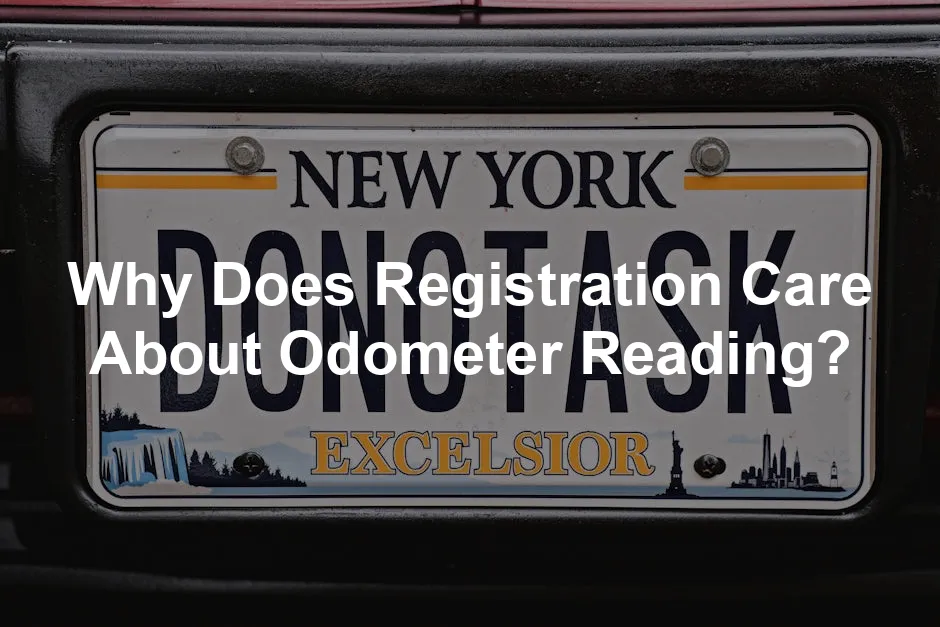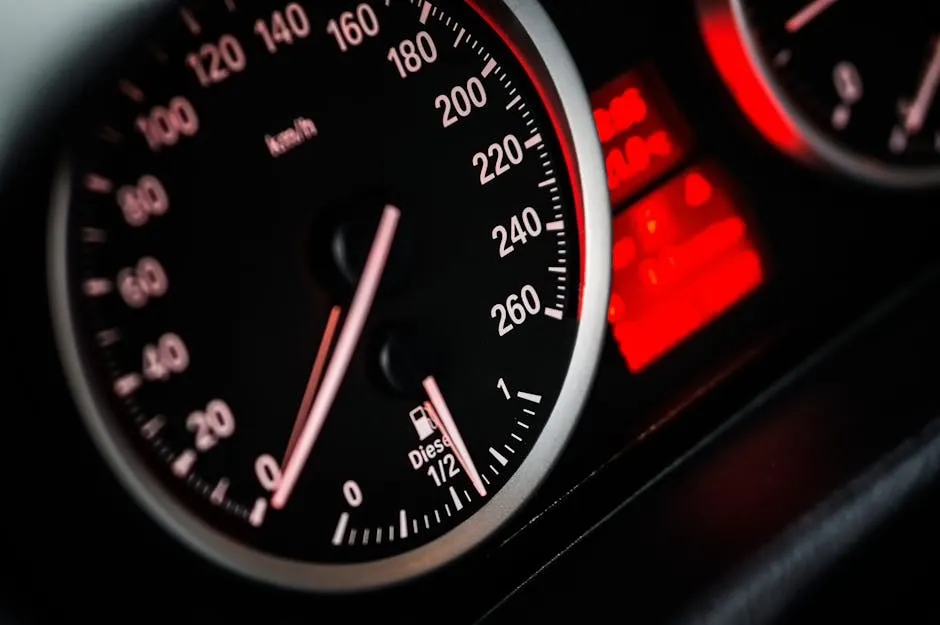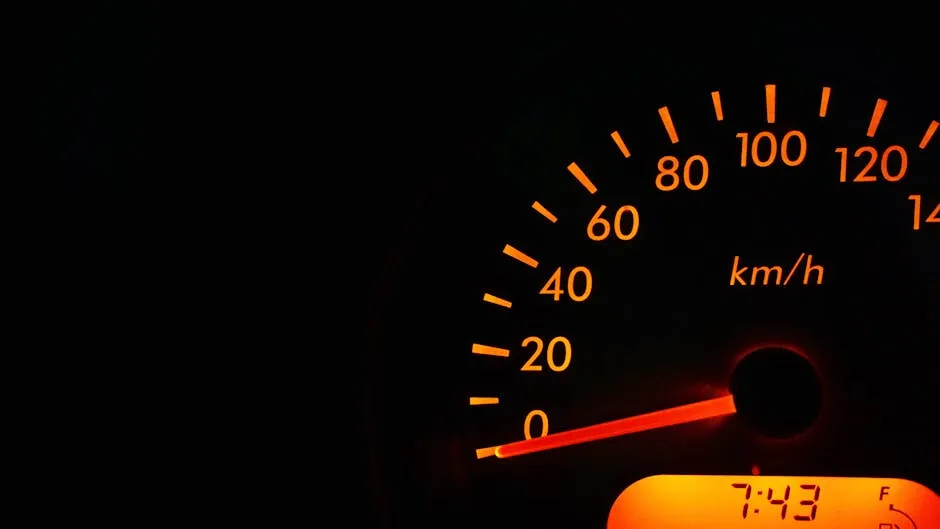
Why Does Registration Care About Odometer Reading?
Introduction
Accurate odometer readings are crucial for vehicle registration, affecting everything from valuation to legal compliance. This blog post explains why odometer readings are important in the registration process and explores the implications of inaccurate data, including potential fraud.
To ensure you’re always on the right track, investing in an Odometer Mileage Tracking Device can help you keep track of your vehicle’s mileage accurately. No more guessing games or worrying about discrepancies!
Understanding Odometer Readings
What is an Odometer Reading?
An odometer is a device showing how far a vehicle has traveled. It serves as a crucial indicator of wear and tear. There are two main types: mechanical and digital. Mechanical odometers use gears, while digital ones rely on electronic sensors. Most countries measure distance in either miles or kilometers.
Types of Odometer Readings
- Actual Mileage: This is the accurate representation of distance traveled.
- Not Actual Mileage: Indicates discrepancies in the recorded data.
- Exceeds Mechanical Limits: This occurs when the odometer rolls over after reaching its maximum reading.
- Exempt from Reporting: Some older vehicles, typically over 20 years, are exempt from odometer reporting.
Importance of Accurate Odometer Readings
Accurate odometer readings impact vehicle value significantly. Higher mileage often leads to lower resale prices. They also inform maintenance schedules, helping owners stay on top of necessary care. Legally, providing incorrect readings during transactions can result in severe consequences.
To further ensure your vehicle’s reliability, consider investing in an Vehicle History Report Subscription (Carfax). This can help uncover any hidden surprises before you buy a used car.
Key Topics:
What constitutes an accurate reading? Misconceptions about odometer readings can mislead buyers and sellers alike. Transparency in vehicle transactions is essential to build trust.
Statistics:
More than 450,000 vehicles in the U.S. are sold each year with inaccurate odometer readings, costing buyers over $1 billion.
LSI Keywords:
Vehicle mileage, odometer types, odometer fraud.
Understanding these nuances aids in making informed decisions and helps prevent fraud. Buyers should always verify mileage to ensure they’re not falling prey to deception. Remember, a little diligence goes a long way in the automotive world!

Legal Framework Surrounding Odometer Reporting
Odometer Disclosure Requirements
Odometer disclosure is a legal necessity in the United States. Both federal and state laws mandate that vehicle sellers report the accurate mileage when transferring ownership. The Truth in Mileage Act requires this disclosure to combat odometer fraud. Sellers must provide a written statement indicating the vehicle’s mileage. Failure to comply can lead to legal consequences and complications during registration.
State laws may vary, but they often align closely with federal guidelines. For instance, some states require additional forms to confirm the odometer reading. It’s vital for buyers to receive this information during the sale. Accurate mileage helps establish trust and transparency between buyers and sellers. After all, who wants to be fooled by a number that doesn’t add up?
Consequences of Odometer Fraud
Odometer fraud is a serious crime with substantial repercussions. Sellers caught manipulating odometer readings can face hefty fines and even imprisonment. The National Highway Traffic Safety Administration (NHTSA) reports around 450,000 cases of odometer fraud each year, costing buyers over $1 billion. It’s not just about the money; it’s about the integrity of the vehicle market.
When fraudulent readings are reported, it can complicate vehicle registration. If a buyer discovers discrepancies post-sale, they might face difficulties obtaining a clear title. This could lead to legal disputes between buyers and sellers, adding stress to what should be a straightforward transaction.
Exemptions to Odometer Reporting
Not all vehicles are subject to odometer reporting. Certain categories of vehicles are exempt from these requirements. For example, vehicles that are 20 years or older typically do not require an odometer disclosure. This exemption was updated from 10 years to help combat widespread fraud in the market.
Heavy-duty vehicles and trailers often fall under this exemption as well. These vehicles are used for specific purposes and usually have longer lifespans. Recreational vehicles (RVs) and diplomatic cars may also be exempt, as their mileage may not directly impact their value in the same way.
Changes in regulations over the years aim to enhance consumer protection and reduce fraudulent practices. Buyers should always verify whether a vehicle is exempt from reporting to ensure they are making a fully informed purchase.

Odometer Fraud: Detection and Prevention
Common Types of Odometer Fraud
Odometer fraud is a sneaky game played by some sellers. The goal? To manipulate the odometer reading to mislead potential buyers. Common tactics include rolling back mechanical odometers or using sophisticated devices on digital ones. A popular method involves simply disconnecting the battery or altering the odometer’s wiring. This can create the illusion of a lower mileage vehicle.
Fortunately, technology is on our side! Many states now require vehicle history reports that track past odometer readings, making it harder to hide the truth. Additionally, some companies offer advanced tools that can detect discrepancies in mileage, helping buyers avoid falling victim to scams. One such tool is the Odometer Rollback Detection Tool, an essential gadget for cautious buyers.
How to Spot Odometer Fraud
Recognizing odometer fraud can be tricky but not impossible. For mechanical odometers, look for signs such as worn pedals, steering wheels, and seats that seem inconsistent with the displayed mileage. If a car shows 20,000 miles but feels like it’s been through a war zone, you might be dealing with a rollback.
Digital odometers can be even sneakier. Inspect for tampering by checking for scratches around the odometer area or mismatched screws on the dashboard. A vehicle history report is your best friend here. It can reveal past mileage entries and give you insights into any discrepancies. Always ask the seller for this crucial document.
Preventative Measures for Buyers
Skepticism is key when purchasing a used vehicle. Start by verifying the odometer reading against the vehicle history report. This should match the records from inspections or maintenance. Compare the vehicle’s condition with its mileage; if something feels off, trust your instincts.
It’s also wise to consult with a trusted mechanic. They can assess the vehicle for any hidden issues and provide an expert opinion. Online resources like Carfax and AutoCheck offer valuable insights into a vehicle’s past. Always take advantage of these tools to protect your hard-earned cash.
And let’s not forget about safety! Keeping an Emergency First Aid Kit for Cars handy can prepare you for any unexpected bumps in the road.
Remember, you can never be too careful. Odometer fraud is a serious offense that costs car buyers billions annually, so stay informed and vigilant. By taking these precautions, you’ll be better equipped to dodge the pitfalls of odometer fraud and make a wise purchase.

The Process of Registering a Vehicle and Odometer Requirements
Steps for Vehicle Registration
Registering a vehicle isn’t just signing a few papers; it’s a mini-adventure through the paperwork jungle! First, gather essential documents. You typically need proof of identity, such as a driver’s license. Next, provide proof of ownership, like the vehicle title. Don’t forget your insurance information—yes, the state wants to know you’re covered!
Now, let’s chat about the odometer. During registration, you must disclose the vehicle’s current mileage. This is crucial. Why? Well, accurate odometer readings help determine the vehicle’s value and ensure transparency in sales. Most states require you to sign a declaration confirming the mileage is correct. So, if your odometer says 50,000 miles, but you’ve been using it like a taxi, you might be in hot water!
Odometer Reporting during Title Transfers
When transferring a title, odometer readings take center stage. Accurate readings are vital here, too. Sellers must provide the correct mileage to the buyer. This not only helps establish the vehicle’s worth but also protects against potential fraud.
Each state has legal requirements for odometer reporting during title transfers. Generally, the seller must complete an odometer disclosure statement. This document states whether the mileage is “actual” or “not actual.” Buyers should pay close attention to this, as it can influence their purchasing decision. If the seller fails to provide accurate mileage, they might face legal consequences.
What Happens if Odometer Reading is Incorrect?
Oops! What if you discover the odometer reading is incorrect after registration? The consequences can be serious. Reporting incorrect readings can lead to fines or even criminal charges in severe cases.
If you spot a discrepancy, act fast! Gather any documentation proving the correct mileage, like maintenance records or inspection reports. Then, contact your local DMV. They’ll guide you through the process of correcting the records. Ignoring the issue won’t make it go away; it could complicate your vehicle’s title and registration status down the line.
In summary, knowing the ins and outs of odometer requirements during registration and title transfers is essential. Accurate documentation not only ensures compliance but also fosters trust between buyers and sellers. After all, nobody wants to drive a car with a questionable history!

Statistics show that one in five vehicles may have inaccurate odometer readings, leading to common registration issues. Staying informed can save you from headaches and ensure a smoother registration process. So, keep your odometer game strong!
FAQs
Why is an accurate odometer reading important for vehicle registration?
Accurate odometer readings help determine a vehicle’s value and ensure compliance with legal requirements. They provide essential information to buyers and sellers about the vehicle’s history. A precise reading can also prevent disputes during sales, making the registration process smoother. If a vehicle has a low mileage reading, it often indicates less wear and tear, which is a selling point for most buyers.
What are the consequences of providing an incorrect odometer reading?
Providing an incorrect odometer reading can lead to legal repercussions, potential fines, and issues with title transfer. If the discrepancy is discovered after the sale, it might complicate the registration process for the new owner. This could also result in civil lawsuits between buyers and sellers. In severe cases, it may lead to criminal charges, especially if fraud is suspected.
How can I verify a vehicle’s odometer reading?
To verify a vehicle’s odometer reading, use vehicle history reports, compare maintenance records, and inspect the vehicle’s condition. Checking the wear and tear on pedals and seats is another great indicator. Additionally, reputable sources like Carfax can provide insights into past mileage readings. Always cross-reference the current odometer reading with these documents.
What should I do if I suspect odometer fraud?
If you suspect odometer fraud, report your suspicions to local authorities and consult a legal expert if needed. Gather all relevant documents, including the title, maintenance records, and any vehicle history reports. This information will be crucial in supporting your claims. Taking prompt action can help protect your rights as a consumer.
Are there any exemptions for odometer reporting?
Yes, certain vehicles, such as those over 20 years old or specific classifications like heavy-duty vehicles, may be exempt from odometer reporting. This exemption helps reduce the burden of reporting for older vehicles that are less likely to be subject to fraud. Knowing these exemptions can assist buyers in understanding the vehicle’s history and value.
Please let us know what you think about our content by leaving a comment down below!
Thank you for reading till here 🙂
And don’t forget to check out some essential car tools! For instance, keeping a Automotive Tool Set in your trunk can save the day when you encounter a pesky problem on the road!
And if you’re a fan of road trips, consider investing in a Portable Jump Starter. You never know when you might need a boost to get back on the road!
All images from Pexels




